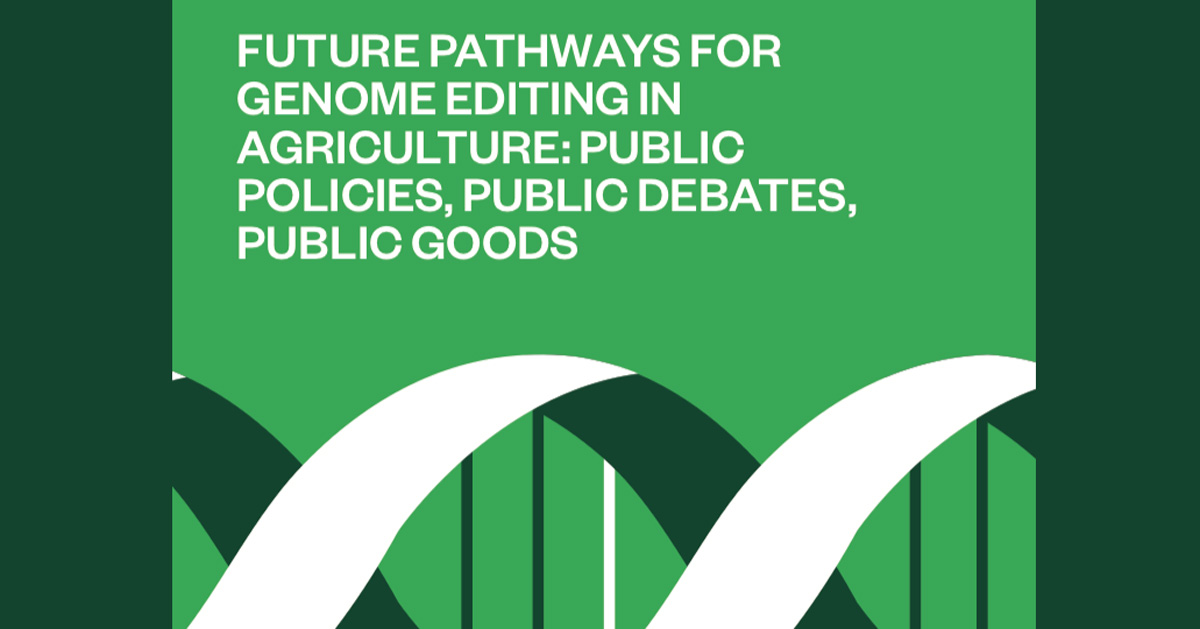
Issues should form the basis of a real debate
The UK government's public consultation on deregulating gene-edited GM crops, foods and livestock animals closes tomorrow.
Today the STEPS Centre, a global research and policy engagement centre funded by the Economic & Social Research Council (ESRC), published a new briefing discussing the governance of genome editing applications in agriculture, especially in crop breeding.
The briefing collates key insights arising from desk-based research and an expert dialogue which was convened during October 2020 by the policy hub of the GEAP3 network, an international consortium of scholars who are studying the domestic and international ramifications of the EU’s approach to genome editing.
The briefing raises tough policy and regulatory questions for the European Union (EU) and the United Kingdom (UK) in the context of their trade relationships with each other and with third countries, especially in North America and sub-Saharan Africa.
The briefing identifies the major themes arising from the dialogue and documentary sources, and sets out a number of outstanding questions for policy. It presents all sides of the debate on gene editing. For example, it counters claims of the precision of the technology from some stakeholders by noting that critics point to "scientific reports in which CRISPR was found to have created unintended changes in genomes, both at the target location and in non-target areas".
On claims that gene editing will improve sustainability, the briefing says, "The doubters want to see evidence that new genome-edited crop varieties will really enable farmers to achieve a step-change in sustainable productivity, resource-use efficiency, or other desirable objectives, or do so any quicker than other methods of crop improvement."
The briefing raises worries about co-existence of gene-edited crops and non-GM crops, noting that critics worry that "complete deregulation would mean that farmers and consumers who want to avoid genetically engineered crops would be denied the freedom to do so, or would be burdened with all the costs of keeping genome edited and non-genome edited crops separate."
According to the briefing, some contributors to the dialogue "expressed scepticism about the idea that simply deregulating genome-edited crops and foods would automatically lead to the development of socially and environmentally valuable products", since "Profit-driven commercial actors typically prioritise private benefits and short-term rewards over public goods and long-term benefits."
The briefing ends by raising some questions for European and other policy makers and decision makers to consider, relating to the future governance of genome editing in agriculture and food. They include:
* "If the regulations applied to (some) genome edited organisms differ from the rules applied to transgenic organisms (GMOs) in agriculture and food, what principled grounds will explain and justify the difference in treatment?"
* "Will policies and regulatory frameworks governing genome editing in crop improvement take account of the proposed social purposes and plausible public benefits that could be attained using general or specific applications of the technology? If such intended purposes and future benefits are to influence regulatory decisions, how could they be assessed and weighed against potential risks and harms?"
* "What accountability exists for making promises about the benefits of genome editing and its products?"
* "Can we rely on the developers of genome-edited organisms, nationally and internationally, always to be responsible and conscientious in checking for unintended on- and off-target effects, and to identify risks and manage hazards that might arise from them?"
The issues raised in the briefing – including people's right to choose "alternative technological paths" – should be carefully considered by the UK government and the EU. The UK government in particular should use them as the jumping-off point for a broader societal and scientific debate on the regulation of gene-editing technologies.










